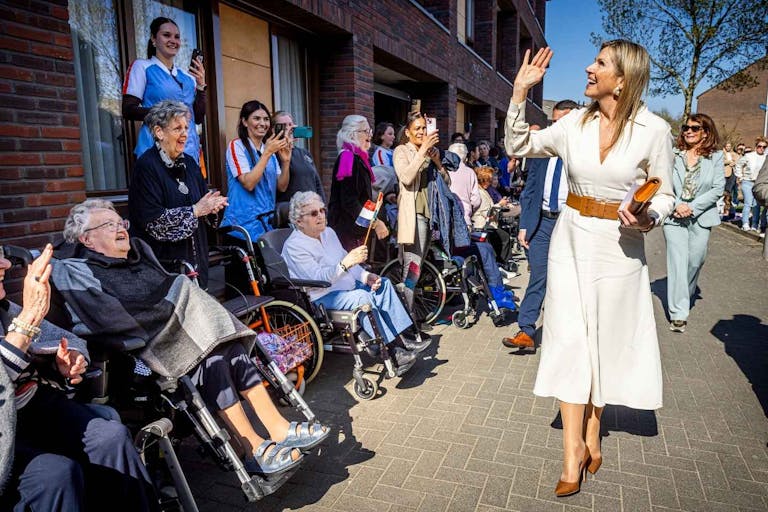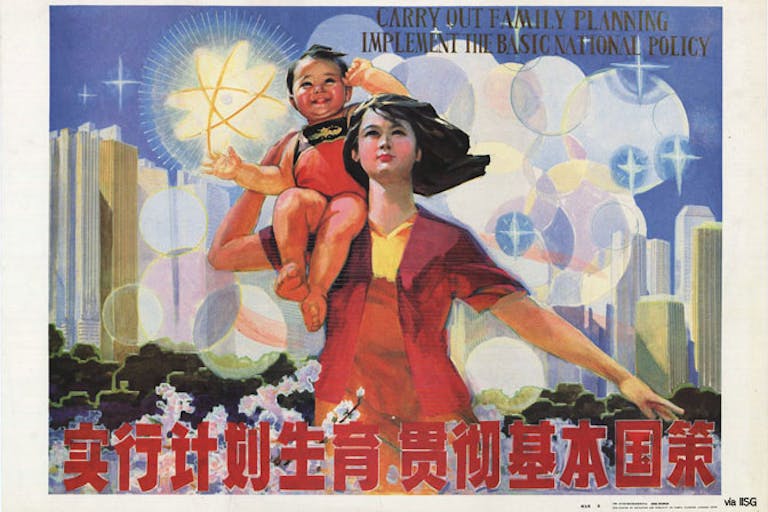
Netherlands sounds alarm over plummeting birth rate, aging population
Cassy Cooke
·
Human Interest·By Nancy Flanders
Chinese parents reunite with daughter they would have been forced to abort
In 1994, when China was still pushing its One-Child coercive population control policy, a young couple faced an agonizing decision when they learned they were pregnant with their second child. They knew they would be forced to abort their baby. They also knew that if they tried to hide their child, she would be forced to live in the shadows, with no education and no healthcare. So they secretly carried their baby girl to term and then gave her up, hanging onto the hope that they would one day see her again.
“I would have felt so sorry if we had aborted her,” said Fenxiang, the father. “I thought that even if we couldn’t afford to raise her we could give her away. On the morning of the third day after she was born, I prepared her milk, I held her and hugged her for a while. Then I walked to the market. She didn’t cry. She was asleep. I kissed her gently. I knew it was the final farewell.”
China’s long-standing One-Child policy led to over 300 million abortions. Under the original policy, if a woman became pregnant with her second child she would have to consider abortion or suffer the alternatives. Mothers tell stories of government officials chasing them down, arresting them, charging them fines sometimes as large as a year’s salary, and then forcibly aborting their children. If a woman tried to hide a second pregnancy there was often a neighbor or a co-worker eager to turn her in. And while China has said that it now will allow some families to have two children, these horrific attacks on human rights still occur.
Knowing this, the young couple decided that their baby girl’s life was worth any risk to their own well-being. They kept her hidden during the pregnancy and kept her for three days after her birth. Then they said their painful goodbyes. It would be a year before that baby, now named Kati, would be adopted by a couple from the United States. As she grew, she would sometimes ask questions about her birth or her adoption. And after 20 years she learned that her adoptive parents had been given a note that had been written by her biological parents. It read in part, “If you have sympathy for us parents, please meet us on the Broken Bridge in Hangzhou in 10 or 20 years’ time.”
It was a heartbreaking plea to see their girl again. In 2004, when she would be turning 10 years old, Kati’s birth father began making the trip to the Broken Bridge each year looking for her. She wouldn’t arrive for another 10 years, but when she did, it was an emotional reunion captured on video for BBC.
Article continues below
Dear Reader,
In 2026, Live Action is heading straight where the battle is fiercest: college campuses.
We have a bold initiative to establish 100 Live Action campus chapters within the next year, and your partnership will make it a success!
Your support today will help train and equip young leaders, bring Live Action’s educational content into academic environments, host on-campus events and debates, and empower students to challenge the pro-abortion status quo with truth and compassion.
Invest in pro-life grassroots outreach and cultural formation with your DOUBLED year-end gift!
“What can I say to her when we meet?” her father said to BBC. “Would it help to say sorry? No. Ten thousand sorries wouldn’t be enough.”
“I will absolutely and uncontrollably throw myself at her,” said her mother Lida on the way to the bridge, “and beg for her forgiveness.”
READ: China plans to relax one-child policy, but forced abortions continue
Kati was concerned she would be a disappointment to her parents, but it is clear from the video that that could never be the case. Her mother, sobbing, threw her arms around her daughter. The resemblance between them is hard to miss.
“Finally, I see you,” she cries. “Mum is so sorry.”
It’s a heartbreaking moment — one that never would have had to happen if China had not implemented such brutal control over its citizens. But it’s also a moment that wouldn’t have happened if Kati’s parents had chosen to follow the rules and abort their baby girl. They risked their physical and financial security for their daughter’s life. They suffered through decades of missing Kati and wondering about her. Now they can finally see her and hold her once again.
Live Action News is pro-life news and commentary from a pro-life perspective.
Contact editor@liveaction.org for questions, corrections, or if you are seeking permission to reprint any Live Action News content.
Guest Articles: To submit a guest article to Live Action News, email editor@liveaction.org with an attached Word document of 800-1000 words. Please also attach any photos relevant to your submission if applicable. If your submission is accepted for publication, you will be notified within three weeks. Guest articles are not compensated (see our Open License Agreement). Thank you for your interest in Live Action News!

Cassy Cooke
·
Human Interest
Angeline Tan
·
Human Interest
Bridget Sielicki
·
Human Interest
Nancy Flanders
·
Human Interest
Nancy Flanders
·
Human Interest
Nancy Flanders
·
Issues
Nancy Flanders
·
Human Interest
Nancy Flanders
·
Investigative
Nancy Flanders
·
Pop Culture
Nancy Flanders
·
Human Interest
Nancy Flanders
·